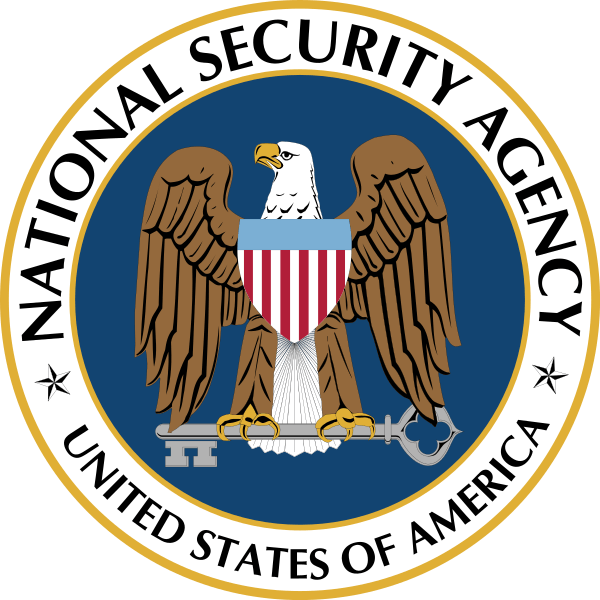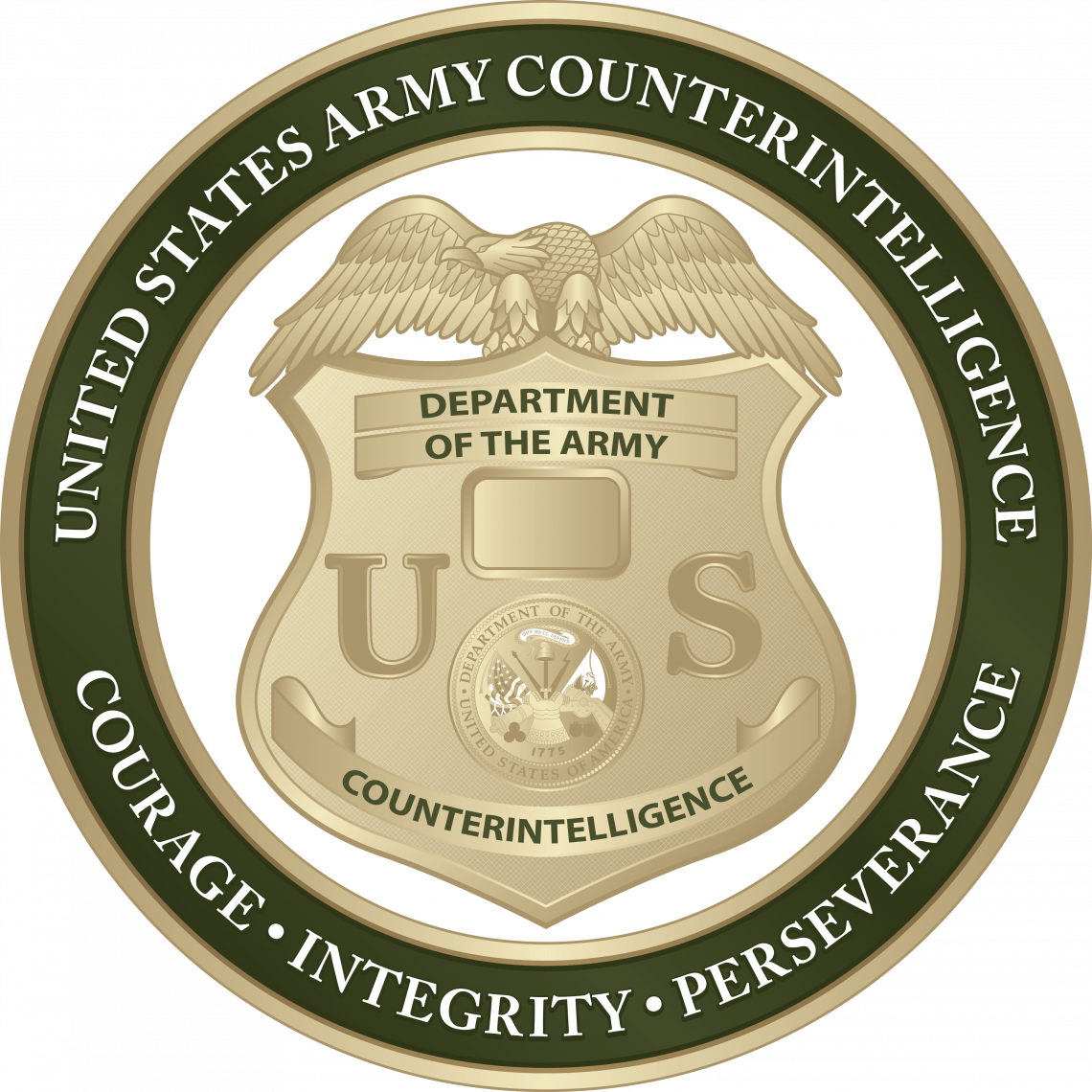About US Army
Counterintelligence
US Army Counterintelligence (CI) Special Agents are not technically 1811's but they are in fact "Special Agents" who conduct criminal investigations, and now even have the option of going to the Federal Law Enforcement Training Center's (FLETC) Criminal Investigator Training Program (CITP) to enhance their training.
Unlike the
Naval Criminal Investigative Service (NCIS) and
Office of Special Investigations (OSI), the Army separates their criminal investigators into two separate components known as
Army Criminal Investigative Division (CID) and Army Counter-Intelligence. The United States Coast Guard made the same decision when they established the Coast Guard Counterintelligence Service (CGCIS). The civilian counterparts for Army CID are classified as 1811's, however the civilian counterparts for Army CI are classified as 0132's in what is known as the Military Intelligence Civilian Excepted Career Program (MICEP). Army CID is responsible for investigating the more traditional range of criminal activity that most people would associate with the job of a Special Agent and you can read about them
here. On the other hand, Army CI is responsible for criminal investigations related to National Security Crimes like espionage, terrorism, sabotage, subversion, sedition, and treason while also taking on the role of traditional intelligence collectors.
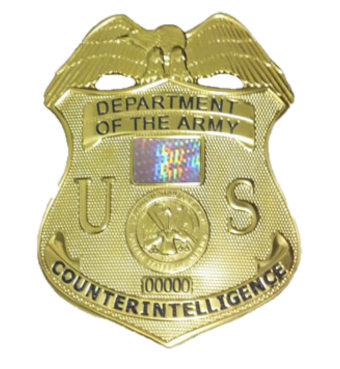

5 Functions of CI
Investigations
- Investigation of National Security Crimes
- Investigating the defection of Military personnel and DA Civilians overseas
- Security Violations
- Investigations involving AWOL/deserters and suicides involving someone with access to classified material
Operations
- CI Special Operations/National Foreign Counterintelligence Program
- Offensive Counterintelligence Programs
- CI Support to Force Protection
Collection
- Intelligence collection related to foreign intelligence service activities
- Intelligence collection related to national security crimes
- Write intelligence information reports
- Intelligence debriefings
Analysis and Production
- CI analysis focusing on foreign intelligence and insider threat
- CI threat and vulnerability assessments
- CI studies of foreign intelligence services and insider threat
Functional Services
- CI Polygraph Program
- Technical Surveillance Countermeasures (TSCM)(sweeping for bugs as it is colloquially known)
Requirements and Training
Traditionally you had to already have experience in the military to become an Army CI Agent. Although in the past and currently due to operational requirements, you are allowed to go straight into the military occupational specialty (MOS) of 35L; otherwise known as Counterintelligence Special Agent. This MOS was previously known as 97B. Other requirements include:
- Top Secret Security Clearance
- Minimum age of 21
- Minimum score of 105 in aptitude area ST on the ASVAB test
- Must be a US Citizen
- Must be interviewed by a qualified Army Counterintelligence Special Agent
- Have normal color vision
Once you have received the memorandum authorizing attendance at the CI Special Agent Course (CISAC) or CIAC, you will either go to the Active Duty or Reserve schoolhouse at Fort Huachuca in Arizona; or the National Guard schoolhouse at Camp Williams in Utah. Both schools will provide you with the same training, however the Active Duty course operates on a 5 day schedule and incorporates a traditional active duty training environment with physical fitness included. The Reserve and National Guard schoolhouses operates under an expedited 6 day work week with no group physical fitness. One of the primary differences between the two is during the source operations training phase. In Utah the schoolhouse is near Salt Lake City, which provides a great environment for source operations training in a real world environment. The town outside of Fort Huachuca is known as Sierra Vista, is rather small, and does not provide for a very good training environment.
CI Special Agent Course (CISAC)
CISAC is broken down into 3 or 4 phases and is operated in a collegiate like environment in army uniform and civilian business & casual attire. Typically you will attend the course all at once but it is possible to attend the phases separately. You will receive training on how to conduct investigations and interrogations, source operations, provide CI support to force protection, write reports, process a crime scene, conduct surveillance, and other related activities. The report writing phase is one of the most difficult parts of the course as the instructors are usually very strict, and you will have limited amounts of time to complete your reports. The report writing and formatting training will probably be more extensive than the report writing training in any other academy you have been attended. My personal assessment was that report writing at CISAC was significantly more difficult than at FLETC CITP.
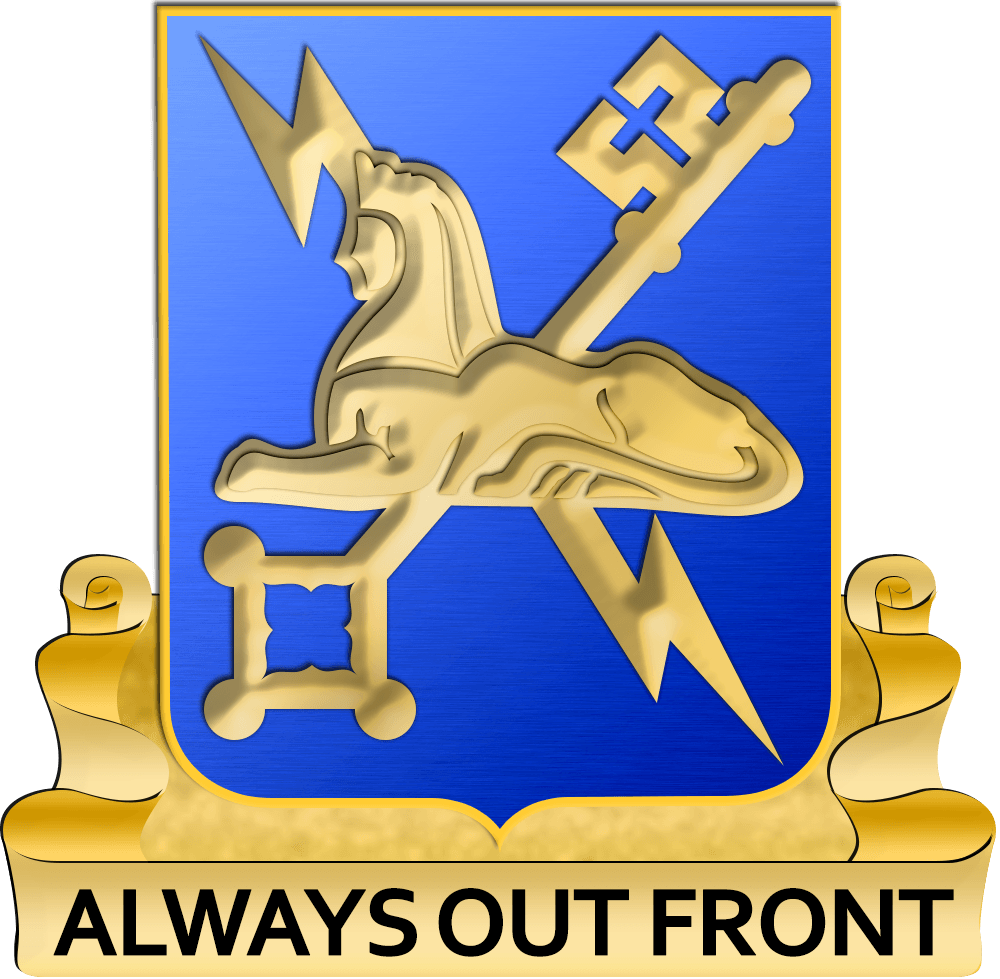

Army Active Duty CI
Like many military positions there are different jobs to do within an MOS and different assignments with different units. The experience you get as an active duty CI agent will greatly depend on the unit you get assigned to and your ability to manipulate the environment to your advantage. The CI community is a very small one and there are many training and unique career opportunities for an ambitious agent.
The traditional job for an Army CI agent that most people probably envision involves working at a field office like other criminal investigators. In the Army this position falls under the 902nd Military Intelligence Group. The other usual assignment is in a tactical CI position, which involves being assigned to a more traditional Military Intelligence unit. This type of assignment can have many training opportunities, as well as deployments. There probably won't be as many investigative experience opportunities and it will most likely include more intelligence collection related experience.

Army Reserve CI
The purpose of most Reserve CI positions like most Reserve positions involves being trained and ready to deploy when needed; and in this case often means augmenting Active Duty CI Units. Reserve units are sometimes viewed as not being as good as Active duty units but again, as in most cases, this stereotype is often wrong. Many Reserve CI units have agents that hold civilian positions in law enforcement and the intelligence community. Often times this results in reservists having more experience conducting investigations and gives them unique capabilities that Active Duty CI Agents won't typically possess.
There are many training opportunities for Reserve CI Agents, but depending on the deployment tempo they may or may not have traditional Active Duty CI experience. If you take advantage of the training opportunities you will have many opportunities for unique CI positions (i.e. Active Duty Temporary Duty assignments (TDY) or deployments).
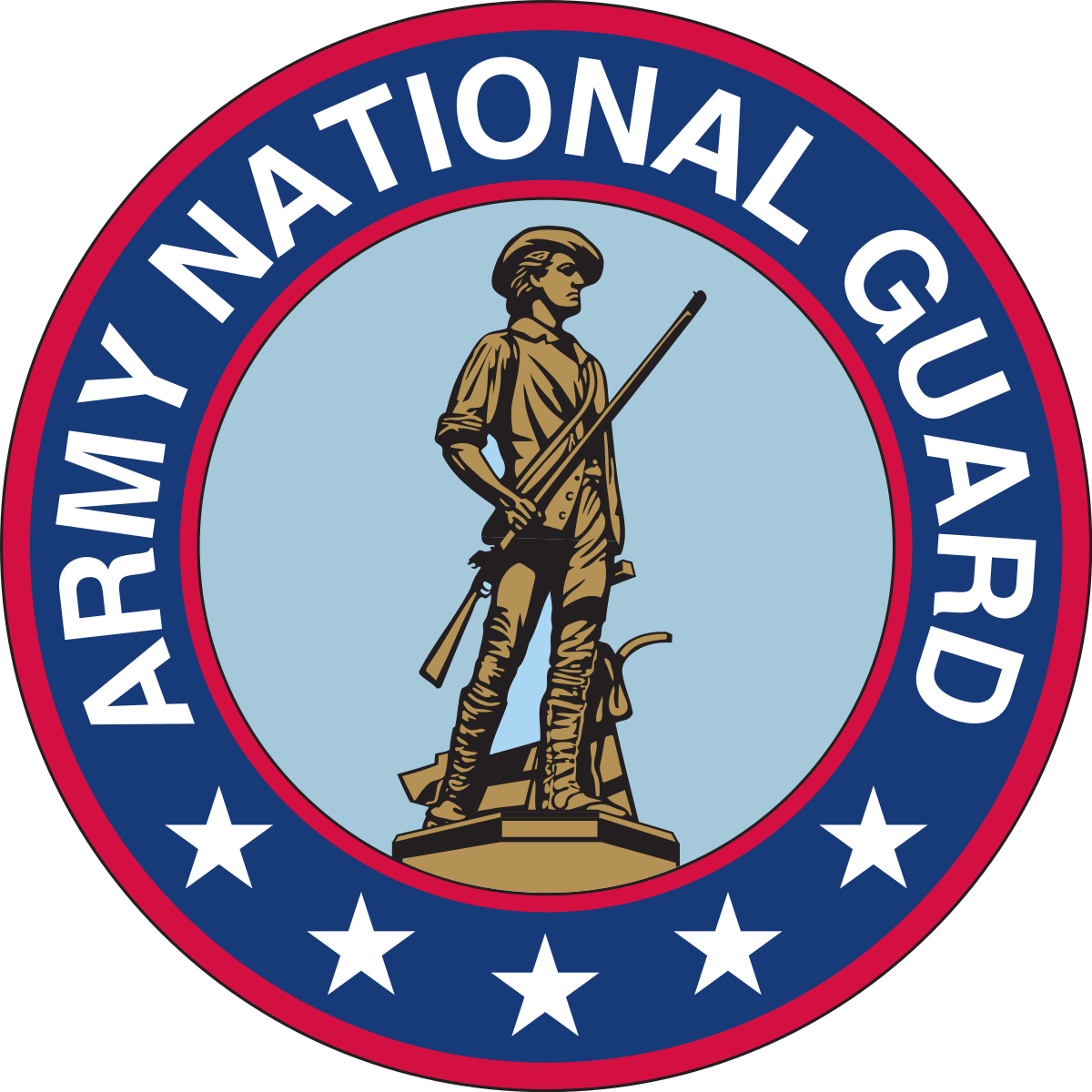
Army National Guard CI
Like Reserve Agents, National Guard Agents often face the same performance related stereotypes but again these Agents have many unique training and job experiences that Active Duty don't. Guard Agents often support federal law enforcement Investigative agencies in special analytical or language assignments related to counter narcotics operations. Also, like Reserve Agents they often hold relevant law enforcement or intelligence related positions on the civilian side.
Camp Williams, Utah is one of the Military Intelligence training locations for CI Agents and Human Intelligence (HUMINT) Collectors (35M). Due to the location in Utah there are many members of the Mormon faith in the National Guard Intelligence Community. These Agents and Intelligence Collectors are extremely desirable for many reasons. They tend to have the backgrounds suitable to obtain a security clearance and often have specialized language and international travel experience due to their mission call in the Mormon faith.
Army Counterintelligence Corps
Army CIC
Army CIC was the precursor to the modern day US Army Military Intelligence Corp and the US Army Intelligence & Security Command. Army CIC was originally formed as the Corps of Intelligence Police (CIP) during World War I and eventually became the Counterintelligence Corps (CIC). One of the original CIC units was the 902d CIC Detachment which was eventually reactivated and redesignated as the 902d Military Intelligence Group underneath US Army Intelligence Command. Army CIC was responsible for participating in a number of operations to include the Manhattan Project and Operation Paperclip.
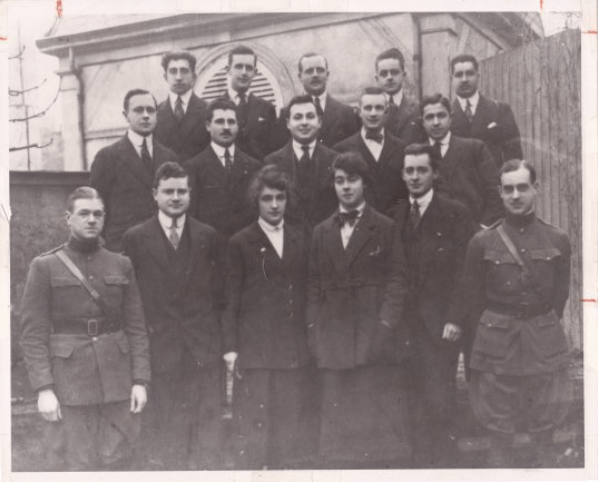
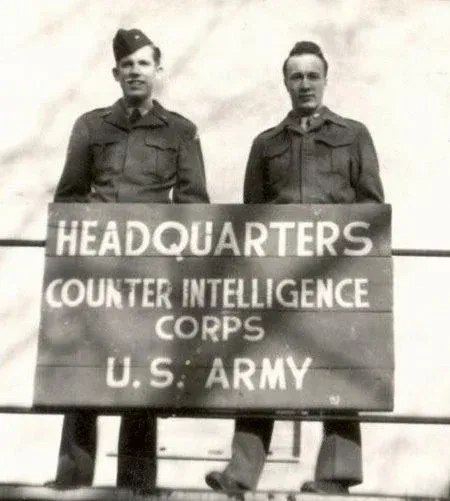
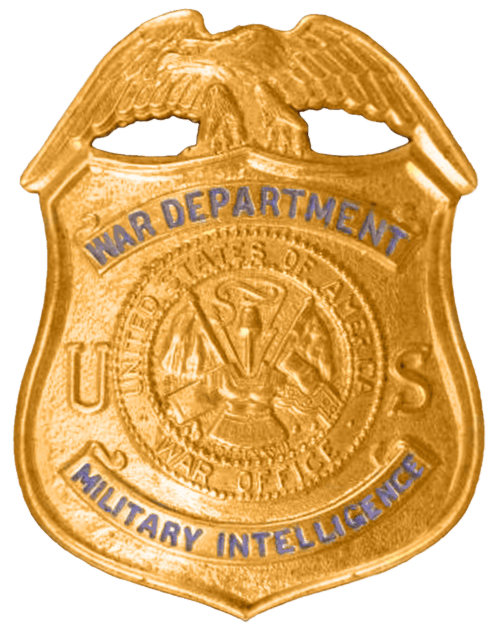
Olson's Ten Commandments of Counterintelligence
-James Olson
- Be Offensive
- Honor your Professionals
- Own the Street
- Know your History
- Do Not Ignore Analysis
- Do Not Be Parochial
- Train Your People
- Do Not Be Shoved Aside
- Do Not Stay Too Long
- Never Give Up
These are some great rules to follow and you can read the full break down here at the Director of National Intelligence (DNI) website.
Counterintelligence Reading List
This list is a bit long but if you are ever looking for a good book in a specific intelligence related area or historical era then this list is a good place to start.
https://www.hanford.gov/files.cfm/readlist.pdf
Army Counterintelligence in Popular Media
Raiders of the Lost Ark

According to the Military Wiki page: In the George Lucas & Steven Spielberg movie Raiders of the Lost Ark starring Harrison Ford, Indiana Jones and his friend Marcus are briefed and sent on a mission by two U.S. Army Counterintelligence Special Agents to locate and recover the Lost Ark of the Covenant before the Nazis can find it.
M*A*S*H
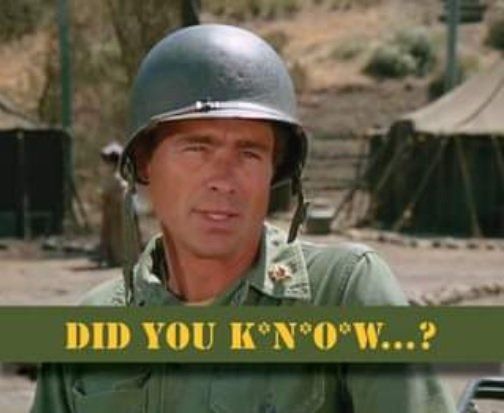
According to wikipedia and Internet lore: COL Sam Flagg alternately claims to be affiliated with the CIA, the CIC, or CID.
The Watchmen
According to the Military Wiki page: In the popular comic book and movie "The Watchmen", a character named Forbes is an Agent of U.S. Army Intelligence
The Imposter

According to IMDB: An ex-Army intelligence agent is hired to impersonate a rich builder who has been marked for assassination. While impersonating the builder, he discovers a conspiracy to embezzle a land-development company.
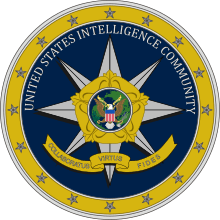
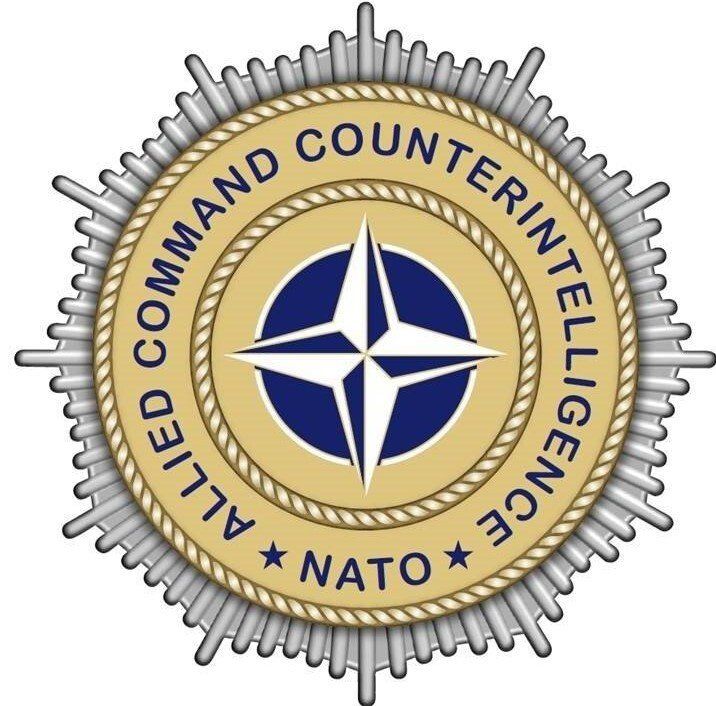


Great Career and a
Stepping Stone
Working in Army Counterintelligence can be an exciting and fulfilling career completely on its own. From working as an Active Duty Special Agent in an Army CI Field Office, supporting the Special Operations Community, working as a civilian agent in MICEP, working on the Joint Terrorism Task Force (JTTF), or working for NATO within the Allied Command Counterintelligence (ACCI); there is no limit to the variety of work that you can find within the CI community. The training opportunities might as well be endless considering that most CI agents will never complete all of the unique training available for CI Special Agents. Depending on what you find interesting there is advanced training available in conducting source operations, becoming a certified polygraph examinations, foreign counterintelligence, surveillance, lock picking, technical surveillance Countermeasures, language training, interrogation training, and the Criminal Investigator Training Program at FLETC just to name a few.
Between Active Duty or later transitioning into a Reserve and or civilian position, you can easily stay with Army CI for your entire career. However the experience gained in the Army CI career field and the training you receive will set you up for many other career opportunities to include civilian 1811 positions. I have met many other 1811's that have started out their careers in Army Counterintelligence. The experience is in high demand, relevant to many career fields, and if you want to stay in the Intelligence Community, there are options with the CIA, DIA, and plenty of other agencies. This short page doesn't even begin to scratch the surface of what you can do in the Counterintelligence world and more information about many of those opportunities are classified and will not be fully explained or understood until you begin to work in that community. At the very least I hope that this page has peaked your interest in Army Counterintelligence and opened your eyes to a great career opportunity and another pathway to the 1811 position.


